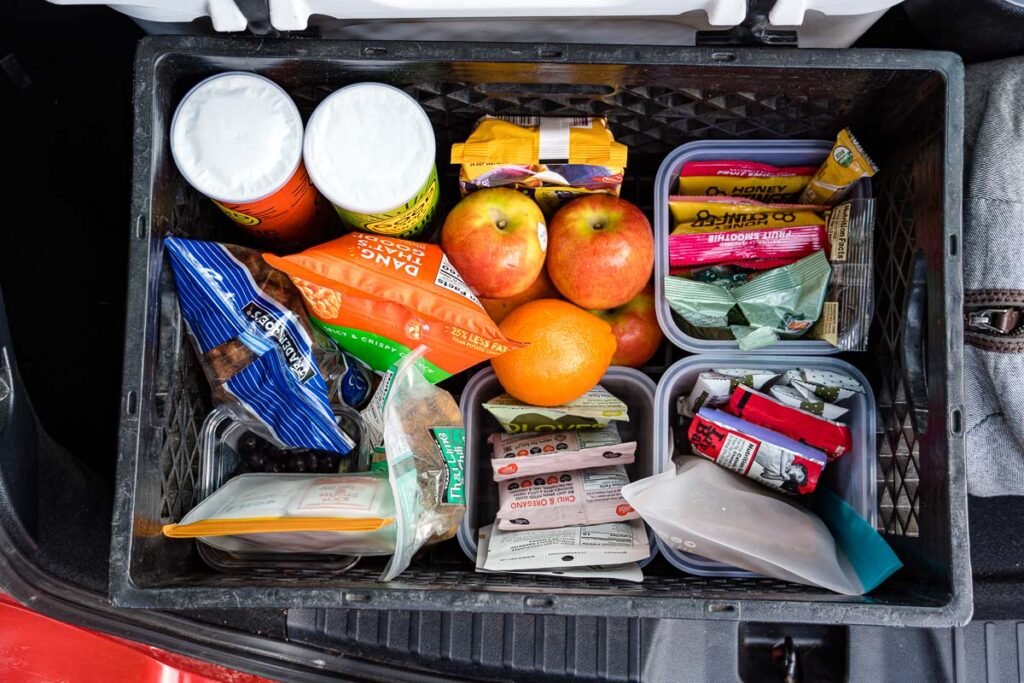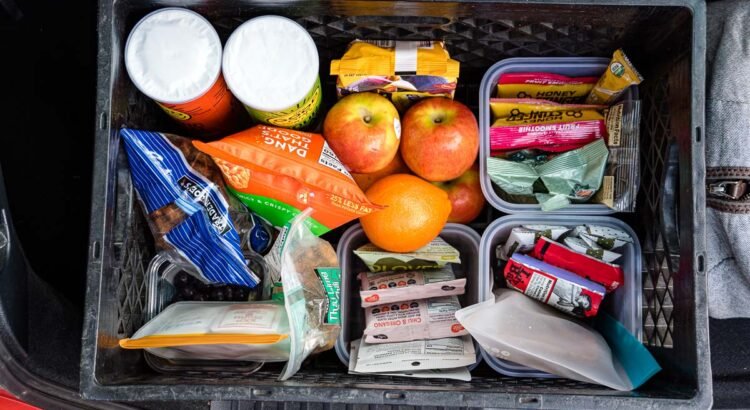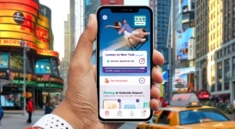
Traveling can be one of the most exhilarating experiences in life, but it can also be physically and mentally demanding. Whether you’re backpacking through rugged landscapes, flying across time zones, or road-tripping across continents, maintaining your energy levels is crucial. And the key to sustained energy on the go lies in what you eat.
Many travelers fall into the trap of grabbing unhealthy snacks, skipping meals, or overindulging in fast food. But with a little planning and a bit of knowledge, you can fuel your body with smart food choices that are portable, nutritious, and energizing. This guide explores a range of smart food options, eating habits, and preparation tips to help you stay nourished and focused throughout your journey—no matter where the road takes you.
1. Why Smart Food Choices Matter While Traveling
Food is more than fuel. It affects your mood, stamina, sleep, digestion, and immune system—all of which are vital during travel. Poor food choices can lead to:
- Energy crashes and fatigue
- Digestive discomfort or bloating
- Increased susceptibility to illness
- Irritability and mental fog
- Weight gain or nutritional imbalances
On the other hand, making smart food decisions helps you:
- Maintain stable energy levels
- Stay focused and alert
- Avoid travel-related stomach issues
- Boost your immune defenses
- Enjoy your travels more fully
2. The Golden Rules of Eating While Traveling
Before diving into specific foods, let’s explore the principles that make up a smart travel diet:
a. Balance is Key
Aim for meals and snacks that contain a mix of:
- Complex carbohydrates for long-lasting energy
- Lean proteins for muscle maintenance
- Healthy fats for satiety
- Fiber for digestion
b. Hydrate Often
Dehydration is a major energy killer. Drink water frequently, especially on flights or during long treks. Add electrolytes if you’re in hot climates.
c. Snack Smartly
Pack nutrient-dense snacks to avoid impulse purchases of sugary or fatty foods.
d. Listen to Your Body
Hunger cues may be thrown off by jet lag or stress. Eat mindfully and don’t skip meals.
3. Top Smart Food Options for Travel
Here are some of the best energizing, travel-friendly foods to keep you powered up throughout your journey.
a. Nuts and Seeds
- Almonds, walnuts, pistachios, sunflower seeds, chia seeds
- Provide healthy fats, protein, and fiber
- Shelf-stable and easy to pack
- Great for controlling hunger between meals
b. Dried Fruit
- Apricots, dates, mango, figs, or raisins
- Offer natural sugars for a quick energy boost
- High in potassium and antioxidants
- Combine with nuts for a balanced trail mix
c. Whole Grain Crackers or Rice Cakes
- Pair with nut butter or cheese
- Provide complex carbs to fuel longer periods of activity
d. Nut Butter Packets
- Single-serve almond or peanut butter packs
- Great source of protein and fat
- No refrigeration needed
e. Protein Bars or Energy Bars
- Look for low-sugar, high-fiber, high-protein options
- Choose bars with real food ingredients like oats, nuts, and seeds
- Great backup meal when options are limited
f. Hard-Boiled Eggs
- High in protein and B vitamins
- Safe to carry unrefrigerated for a few hours
- Ideal for short-haul travel days
g. Fresh Fruit
- Apples, bananas, oranges, and berries
- Natural hydration and vitamin boost
- Easy to carry and refreshing on the go
h. Greek Yogurt (If Refrigeration Is Available)
- Excellent source of protein and probiotics
- Choose unsweetened varieties
- Portable in a cooler or insulated lunch bag
i. Vegetable Chips or Seaweed Snacks
- Low-calorie, high-fiber snacks
- Seaweed also offers iodine and minerals
j. Jerky (Beef, Turkey, or Plant-Based)
- High-protein and savory
- Long shelf-life
- Choose low-sodium, preservative-free options
4. Smart Food Strategies for Different Types of Travel
a. Air Travel
Airports and airplanes are notorious for unhealthy food options. Pack snacks and small meals in advance to avoid overpriced and processed food.
Tips:
- Pack light meals like wraps or salads in leak-proof containers.
- Bring an empty water bottle to fill post-security.
- Avoid alcohol and salty snacks to prevent dehydration.
b. Road Trips
Long hours in the car can lead to mindless eating. Plan snack breaks and healthy meals along the route.
Tips:
- Use a cooler for perishable foods like cheese, fruit, or hummus.
- Pack pre-portioned snacks to avoid overeating.
- Choose roadside restaurants with salad bars or grilled options.
c. Train or Bus Travel
Space is limited, but you still need nourishment. Focus on compact, no-mess foods.
Tips:
- Use reusable snack bags or containers.
- Choose low-odor options to respect fellow passengers.
- Bring hand sanitizer or wipes for cleanliness.
d. Backpacking or Adventure Travel
When hiking or adventuring, calorie-dense, lightweight foods are essential.
Tips:
- Focus on dehydrated or freeze-dried meals.
- Use high-fat snacks like trail mix or energy bites.
- Carry enough for emergencies, especially in remote areas.
5. Healthy Options at Restaurants and Street Food Stalls
Eating out is part of the travel experience. While indulging occasionally is part of the fun, there are ways to make smart choices at restaurants and markets.
Look for:
- Grilled over fried options
- Soups and salads to start
- Dishes with beans, lentils, or lean meats
- Local fruits and vegetables
Avoid:
- Heavy cream-based sauces
- Fried street snacks high in trans fats
- Giant portions—share or save half for later
Street food is often delicious and cultural—just ensure it’s cooked fresh and served hot.
6. Prepping Food for Travel Days
Sometimes the best travel meals are the ones you prepare yourself. For long-haul flights or border crossings, pack your own food to stay in control.
Ideas:
- Whole grain wraps with turkey, avocado, and spinach
- Overnight oats with fruit and nuts
- Mason jar salads with dressing on the side
- Bento boxes with small portions of snacks
Use leak-proof, BPA-free containers. Avoid packing anything with strong odors or liquids that may be flagged at security.
7. Boosting Energy Naturally Through Food
Beyond just eating healthy, there are specific nutrients and food groups that enhance your stamina and clarity.
a. Complex Carbs
- Found in oats, quinoa, brown rice, and sweet potatoes
- Provide slow-release energy to avoid crashes
b. Iron-Rich Foods
- Spinach, legumes, lean meats
- Prevent fatigue and improve oxygen flow
c. Vitamin C
- Found in citrus fruits and berries
- Supports immunity and helps absorb iron
d. Magnesium
- Present in nuts, seeds, and dark chocolate
- Reduces stress and supports muscle function
e. Probiotics
- Found in yogurt, kefir, and fermented foods
- Support gut health and prevent travel-related digestion issues
8. Managing Time Zone and Jet Lag with Food
Jet lag doesn’t only affect your sleep—it can mess with your digestion and hunger cycles too.
Tips to adjust faster:
- Eat according to your destination’s time zone as soon as possible
- Avoid heavy meals close to bedtime
- Skip caffeine or sugar at night
- Stay hydrated and eat water-rich fruits like watermelon or cucumber
9. Special Diets While Traveling
Whether you’re vegan, gluten-free, or managing allergies, staying energized on the road is still possible with preparation.
Tips:
- Learn key phrases in the local language (e.g., “no dairy” or “gluten-free”)
- Download food allergy cards or translation apps
- Use apps like HappyCow to find suitable restaurants
- Pack emergency snacks that meet your dietary needs
10. Final Tips for a Travel-Fueled Lifestyle
- Start strong: Have a nutrient-rich breakfast like oatmeal with seeds and fruit before a busy day.
- Don’t skip meals: Skipping leads to binge eating or energy crashes.
- Stay flexible: Not every destination will cater to your ideal menu—do your best with what’s available.
- Enjoy the moment: Allow room for indulgence without guilt—balance is key.
Conclusion: Fuel Your Adventures With Smart Choices
Food is an integral part of the travel experience—not just for pleasure, but for energy, health, and resilience. By making smart, intentional food choices, you can ensure that your body and mind are ready for every journey ahead.
Whether you’re climbing a mountain, navigating a foreign city, or simply enduring a long travel day, the right fuel makes all the difference. Pack wisely, eat mindfully, and embrace every bite of your adventure with purpose.
Let food be your ally, not a setback. Travel smart, stay energized, and keep exploring.




